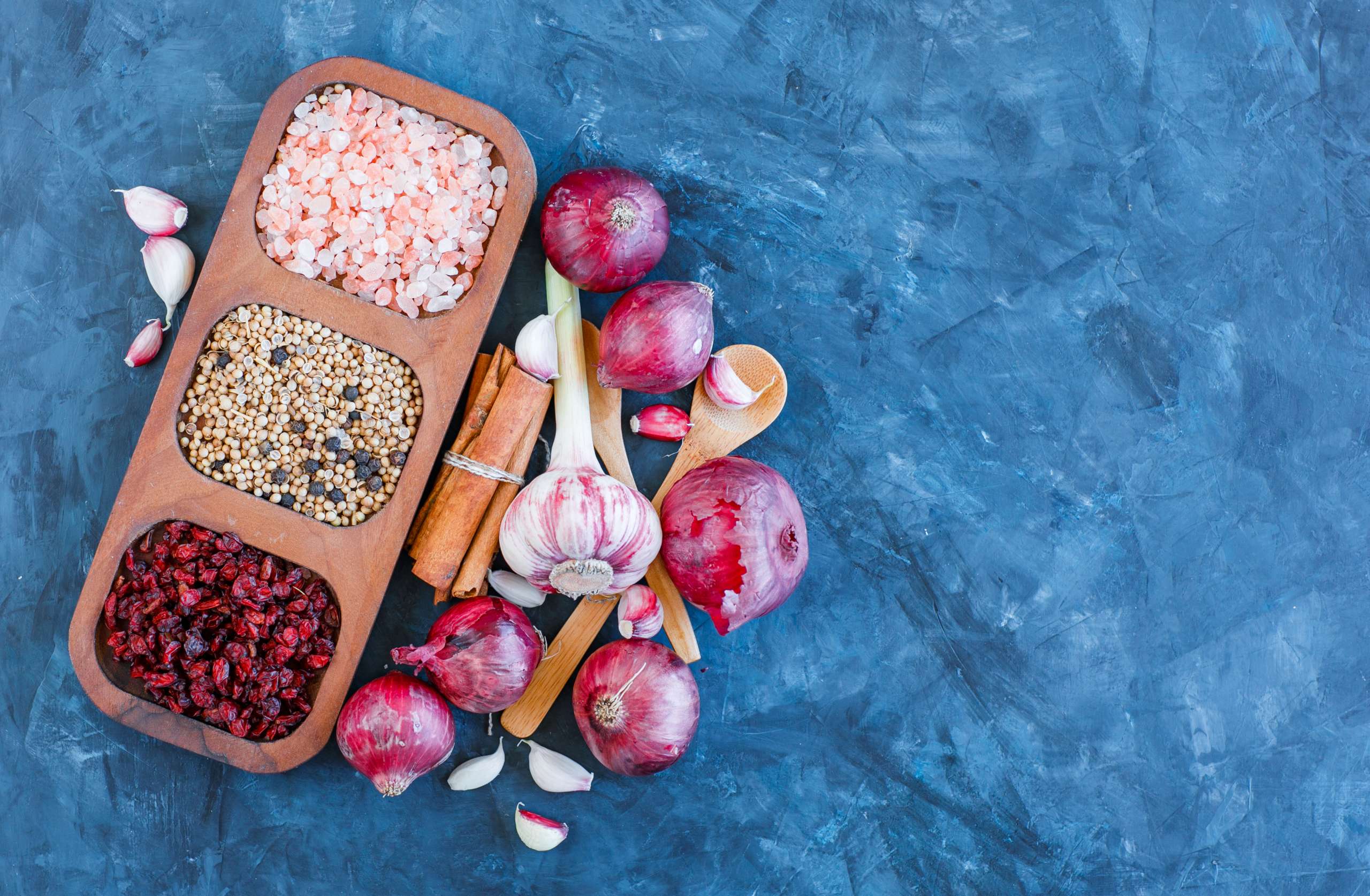
Antibiotics help to fight diseases quickly, but they are not always the only effective method. Before reaching for synthetic drugs, it is worth trying natural methods.
Studies and tests have shown that garlic works more effectively than penicillin and fights pathogens in the body. The vegetable has been used in home medicine for generations, and its properties help not only treat symptoms, but also prevent the development of the disease. Allicin contained in garlic has a strong antibacterial effect, so it destroys microorganisms, bacteria, staphylococci or streptococci. The nutrients are best released in the raw product in the form of whole pieces or grated. To strengthen immunity and protect against seasonal diseases, for example, flu or cold, you can eat 2 cloves of garlic every day.
One of the most popular vegetables contains bactericidal allicin. In addition, onions contain phytoncides, which destroy the structure of viruses, stimulate blood circulation, have a diuretic effect, stimulate appetite, and also regulate glucose levels in the body. Onions help in the treatment of respiratory problems, decongesting clogged ducts, hindering the free intake of air, reduces cough, reduces fever and effectively eliminates the discomfort of a cold. One of the most popular forms of consuming onions for medical purposes is preparing a special syrup from them. Juice from the vegetable in combination with honey and lemon is an ideal method for seasonal ailments.
Citrus is a rich source of vitamins C and B, potassium and beta-carotene, which help to strengthen the immune system. Grapefruit lowers cholesterol, supports heart function and regulates blood pressure. A study published in 2002 showed that the fruit’s seed extract effectively kills most bacteria. During the experiment the liquid fought dozens of tested pathogens implanted in the body. To maintain immunity and strengthen the body, it is worth eating half a grapefruit a day.
The popular spice has many healing properties, including fungicidal, bactericidal, and antiparasitic. Researchers at Georgetown University Medical Center have shown that the oil of the herb fights fungi and bacteria as effectively as antibiotics. Its effects are comparable to streptomycin, penicillin and vancomycin. Like antibiotics, oregano oil has a negative effect on intestinal function and can lead to sterilization of the intestines, so when taking it regularly, it is important to take the exact amount specified on the package. The standard daily dose is about 10 drops of the oil.
Another spice whose effects are great for treating various ailments. Long spurge supports the digestive system, increases bile secretion, helps in muscle relaxation and increases immunity. The biggest effect of turmeric is its anti-cancer effects. Researchers from the American University of Houston in Texas have proven that the active compound curcumin contained in the spice is responsible for killing cancer cells. According to the researchers, turmeric stops the development of breast, colon, stomach, liver, ovarian and even leukemia cancers.
Cranberries contain proanthocyanidins and hippuric acid, which have antifungal and antibacterial properties. The fruit is particularly useful in treating urinary tract diseases caused by E. coli bacteria. Cranberries are responsible for flushing out bacteria from the urinary tract, preventing further infections and speeding up the recovery process. The fructose contained in cranberries also prevents bacteria from sticking to cells, which is helpful in fighting and protecting against gum disease or tooth decay. The product can be consumed as fresh fruit, compote, syrup, extract or jam.
Featured photo: Freepik